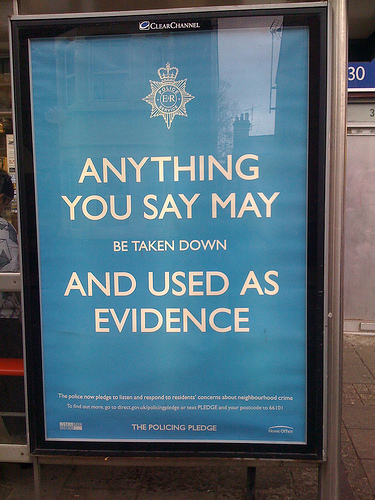Veteran blogger Meg Pickard wrote an insightful post last month about how the adoption of Twitter has mirrored that of blogging before it.
Twitter the company never describe their service as “microblogging”. That’s a smart move from the viewpoint of marketing the service to people who might have preconceived ideas about blogging. But mainly, it probably helps each user and the communities represented to be unconstrained and perhaps more creative in the way they actually use it as a medium.
Twitter feels like blogging at reduced friction. Each tweet (blog post) is tiny and you can type it quickly, on the go. They are also quicker to read than macroblog posts.
So Twitter could be fairly accurately described as microblogging. Some of the Twitter observations Pickard makes are accelerated in comparison to blogging.
People write more posts (tweets) than on a long-form macroblog – in my experience. The “half-life” of conversations is reduced. There’s probably a whole bunch of research someone could do on that if they wanted. (And I’m not talking about the paper where they dismissed 40% of Twitter as “babble”. I think that totally missed the point.)
So I wanted to expand on Pickard’s post and draw more connections between blogging and Twitter, between macroblogging and microblogging if you will. Some of this will apply to Identi.ca and other microblogging services. But I think Twitter’s larger user base makes it a bigger playground for this stuff.
The post
Let’s start with the obvious. A tweet is a blog post. Your tweets are organised by time, with newest at the top. Apart from that you can write anything you like. Same, same.
Following
Following is subscribing. Again, there’s less friction on Twitter because it happens in fewer clicks.
The client
Your Twitter client is your feed reader. The default web client is just a web-based feed reader. You get everyone you’re following aggregated together. But it can also be set to a single blog (a single person’s Twitter timeline).
URL and feeds
Your blog has a HTML version and it also has an RSS or Atom feed. Twitter feels like it has feeds but they’re invisible, they’re simulated by API calls. What I mean is, when you click Follow you’re not made aware of what happened in the background, it’s a black box. Whereas when reading blogs there is a URL to a feed which you subscribe to. (Although every Twitter account has a bona fide RSS feed as well.) Also, because Twitter and other services have emphasised real time there are efforts to make blog feeds real time. Twitter, in turn, is influencing technologies that were established before.)
Replies
Replies on Twitter are like blog pingbacks. They notify @someone that you made a response to their post. But unlike blogs, the “pingback” of a Twitter reply is not visible to onlookers reading the original tweet.
Tags and categories
The counterpart of blog post metadata – tags and categories – is the Twitter hashtag, which was deliberately introduced by a user and then popularised. The Hashtags website is what Technorati is for macroblogs (or rather used to be).
Retweet
Retweets, usually written as “RT @someone” or “via @someone”, are ostensibly about acknowledging a source. They’re a somewhat strange byproduct of Twitter’s lack of a quick way to link to, and read, another tweet. For programmers, it’s analogous to passing by value instead of passing by reference. They’re not native to Twitter at the time of writing.
Suggested user list
When someone joins Twitter now, the site suggests accounts for you to follow. This helps new users to get started and see how it’s being used. But it also offers a huge boost and arguably an unfair advantage to companies and individuals represented. It’s an editorial decision made by Twitter staff, one of the very few such decisions on a service which is mostly neutral – which to some “feels” wrong. There’s no equivalent on the blogosphere, which is sustained by a network and not hosted by a single provider. If Twitter the company want to be seen as fair, maybe they should behave like the blogosphere.
Blogrolls
In the early years of blogging, a blogger would have a “blogroll” which is a list of links to their favourite blogs. These seem to have faded in importance and usage as blogging has popularised. But during the growth of the new medium, they were useful for people navigating the blogosphere and finding other bloggers to subscribe to. Blog rolls were also about giving kudos and link juice. The earliest form of blogroll I have noticed on Twitter is the #followfriday tag, where people suggest accounts worth following.
Twitter list feature (new!)
The new Twitter list feature is a bit like a blogroll. It can be seen as a public endorsement of certain accounts and also a way of giving kudos. You can have up to 20 different lists, e.g. colleagues, bands, journalists, people in my hometown – which is similar to blogrolls that have categories. With Twitter, the emphasis seems to be on usefulness to the compiler of the lists, with the openness and kudos as byproducts. Like blogrolls, the lists help to grow the network by helping people navigate. Twitter lists can also be likened to OPML files, which are bundles of links to RSS feeds. In other words, an OPML file is a blogroll in a file.
Besides Twitter has always had lists. Each account has a grand list of all the people you’re following and it’s public. So the list of people you’re following is a blogroll. Albeit massive and context-blobby.
I think I’ve talked about Twitter as microblogging in enough detail now.
